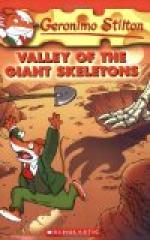True to his word, when John Cardigan finished his logging in his old, original holdings adjacent to Sequoia and Bill Henderson’s Squaw Creek timber, he quietly moved south with his Squaw Creek woods-gang and joined the crew already getting out logs in the San Hedrin watershed. Not until then did Bill Henderson realize that John Cardigan had called his bluff—whereat he cursed himself for a fool and a poor judge of human nature. He had tried a hold-up game and had failed; a dollar a thousand feet stumpage was a fair price; for years he had needed the money; and now, when it was too late, he realized his error. Luck was with Henderson, however; for shortly thereafter there came again to Sequoia one Colonel Seth Pennington, a millionaire white-pine operator from Michigan. The Colonel’s Michigan lands had been logged off, and since he had had one taste of cheap timber, having seen fifty-cent stumpage go to five dollars, the Colonel, like Oliver Twist, desired some more of the same. On his previous visit to Sequoia he had seen his chance awaiting him in the gradually decreasing market for redwood lumber and the corresponding increase of melancholia in the redwood operators; hence he had returned to Michigan, closed out his business interests there, and returned to Sequoia on the alert for an investment in redwood timber. From a chair-warmer on the porch of the Hotel Sequoia, the Colonel had heard the tale of how stiff-necked old John Cardigan had called the bluff of equally stiff-necked old Bill Henderson; so for the next few weeks the Colonel, under pretense of going hunting or fishing on Squaw Creek, managed to make a fairly accurate cursory cruise of the Henderson timber—following which he purchased it from the delighted Bill for a dollar and a quarter per thousand feet stumpage and paid for it with a certified check. With his check in his hand, Henderson queried:
“Colonel, how do you purpose logging that timber?”
The Colonel smiled. “Oh, I don’t intend to log it. When I log timber, it has to be more accessible. I’m just going to hold on and outgame your former prospect, John Cardigan. He needs that timber; he has to have it—and one of these days he’ll pay me two dollars for it.”
Bill Henderson raised an admonitory finger and shook it under the Colonel’s nose. “Hear me, stranger,” he warned. “When you know John Cardigan as well as I do, you’ll change your tune. He doesn’t bluff.”
“He doesn’t?” The Colonel laughed derisively. “Why, that move of his over to the San Hedrin was the most monumental bluff ever pulled off in this country.”
“All right, sir. You wait and see.”
“I’ve seen already. I know.”
“How do you know?”
“Well, for one thing, Henderson, I noticed Cardigan has carefully housed his rolling-stock—and he hasn’t scrapped his five miles of logging railroad and three miles of spurs.”
Old Bill Henderson chewed his quid of tobacco reflectively and spat at a crack in the sidewalk. “No,” he replied, “I’ll admit he ain’t started scrappin’ it yet, but I happen to know he’s sold the rollin’- stock an’ rails to the Freshwater Lumber Company, so I reckon they’ll be scrappin’ that railroad for him before long.”




